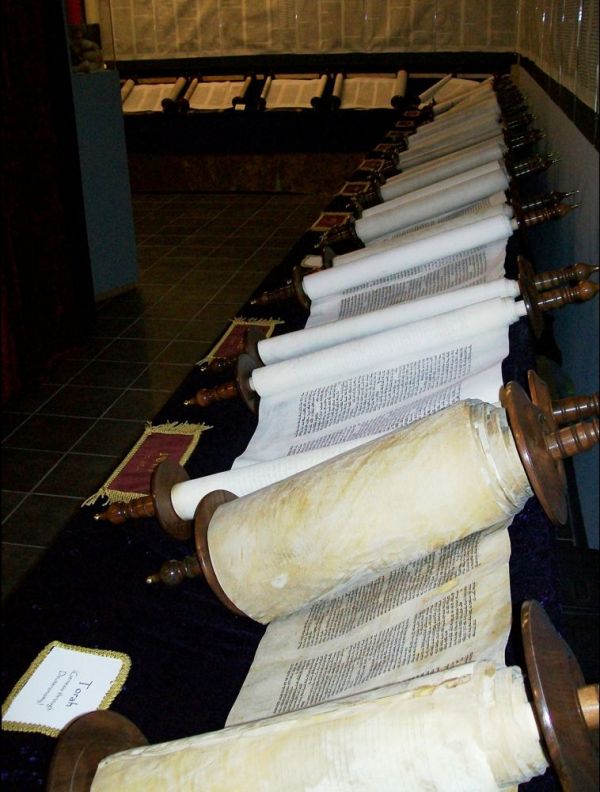(Lk 2:22-40)
Luke 2:29 "Now let your servant, O Lord, be
go in peace according to your word;
Luke 2:30 for my eyes have seen your salvation,
Luke 2:31 prepared by you before all peoples,
Luke 2:32 light to enlighten the Gentiles
and the glory of your people Israel".
Very ancient is the liturgical use of the Nunc dimittis, prayed in the evening before going to sleep. What does it mean to pray the Nunc dimittis? It means first of all to confess that, having believed in God, it is now indifferent for us to die or to live, because by faith we know that we no longer see death. For the believer, true death lies behind us and is in baptism (Rom 6:3-11), so that the death that lies before us should no longer be a cause for anguish or fear. To every believer are addressed the words: "whoever lives and believes in me will not die eternally" (Jn 11:26), which Jesus said to Martha.
Repeating Simeon's words leads us to a confession of faith whereby we can tell God that he can now dismiss us from his service. By going to sleep we prepare ourselves for a moment of powerlessness, a moment in which we are not masters of anything, we prepare ourselves for sleep, which is a figure of death. With this canticle we prepare ourselves to welcome in peace the hour when we will die. To die is a difficult thing, and to die well is a rare grace, but if we practise every night to make sleep a prophecy of death, then we prepare ourselves to go towards death as to an encounter with the Lord.
With the Nunc dimittis we confess the Lord as the Master of our lives, he who by his power can call us to himself every day, and so we learn to make our lives a service from which we can ask to be dismissed.
To pray the Nunc dimittis is to thank God for the miracle of making us come to evening still with faith in him: this alone is a great miracle that must be acknowledged with thanksgiving. Asking each evening to be dismissed from the Lord's service teaches us that it is not for us to finish the work, but that it is for us only to believe and confess that God's work has been accomplished and completed in us. It is we who in our little faith think that we always have something to accomplish.
For the Lord we should always be ready, for he returns as a thief in the night. Before sleep, when night comes, we must be ready to lay down our breath in the Lord's hands, handing our existence back to him.
By praying the Nunc dimittis we also confess that we have seen salvation, that we have seen and recognised God's action. Even at the end of a day of suffering, of weeping, with the Nunc dimittis we acknowledge in faith that God works salvation even through events that make us suffer, that constitute a contradiction for us. But from faith descends the peace that makes us confess: 'we have seen with our own eyes the salvation of God'. And so we bring our whole day before the Lord, and if we have been faithful, then we ourselves will have been 'light of the world'. Even our day, though marked by our weaknesses, will have been light to the heathen, to the unbelievers, to all the people we have encountered.
Even the events that have contradicted us must therefore be considered as something good through which the Lord leads us. After all, Simeon, now old and without a relevant role, is contradicted in his life. Anna, in her condition of old age and widowhood, also experiences events of contradiction. In the first two chapters of Luke we encounter barrenness, poverty, irrelevance, all events of contradiction that run through the lives of all men of God in this part of the gospel. Yet it is precisely these who see themselves superabundantly rewarded by the Lord.
So even amidst the events of contradiction we are called to walk and carry out our mission. According to Luke, the mission was carried out by Simeon, by Anna, not by those who had been commissioned. The one who says: "I am the light of the world" (Jn 8:12) is also the one who says: "You are the light of the world" (Mt 5:14), associating us with his mission, which takes place both in our abasement and in our success.
This opens us up to great freedom in our Christian life and in our calling: whether successful or stoned, we must move forward in obedience to God's promise, not stopping at the contradictions of each day.
If we have lived obedience during the day, we have been light in the world. But in this world we are also the glory of Israel, because Christians, the church, are the missionaries of Israel in the world.
Behold, the Nunc dimittis is truly what seals our day. Simeon sang it at the end, at the sunset of his life; we sing it every evening, at the end of our days, waiting to do it at the end of our existence, at the evening of our lives. Argentino Quintavalle, author of the books
- Revelation - exegetical commentary
- The Apostle Paul and the Judaizers - Law or Gospel?
Jesus Christ true God and true Man in the Trinitarian mystery
The prophetic discourse of Jesus (Matthew 24-25)
All generations will call me blessed
Catholics and Protestants compared - In defence of the faith
(Buyable on Amazon)




